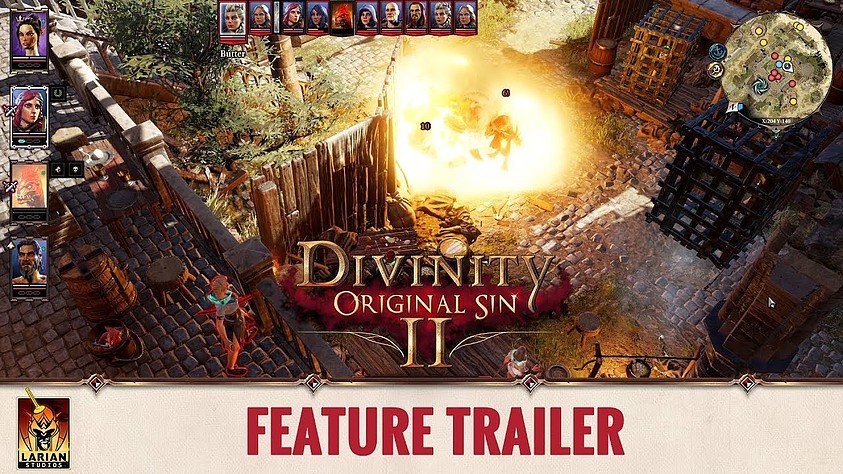
If you miss the old-school RPGs, an immersive story and hours upon hours of gameplay and story, give Larian's Divinity Original Sin a go.
Why I Love Divinity Original Sin 2
If you've played the game and are only interested in my thoughts of the game click HERE, or scroll down to the My Thoughts section.
Click the Image above to view the trailer
I know that I am am late to the party with reviews, but I only just got this game about two months ago and I've probably played it for about over a hundred hours and two play through. I definitely will be playing it again on Honor Mode (the hardest difficulty).
The Story
Without giving to much away, Divinity Original Sin 2's story is about six different characters, Sebille, The Red Prince, Ifan Ben-Mezd, Loshe, Beast and Fane. Each has a distinct and independent story line that can be experienced first hand by picking one of them as your "Origin Character" at character creation or as having them as one of your companions. Depending on your team set-up and whether or not you CHOOSE to do their quest-lines, you'll be able to experience any of the stories at your own pace.
Choice is a very important aspect about this game that I would like to emphasis as a differentiating factor about this game that sets it apart from almost every other game on the market today. As you can only have three companions, your team can be different with every play through. It is also interesting that your companions need to do their quests for them to remain in your party as your own story progresses.
There are many more aspects of this game that are impacted by your choices and decisions and this adds to the replay ability.
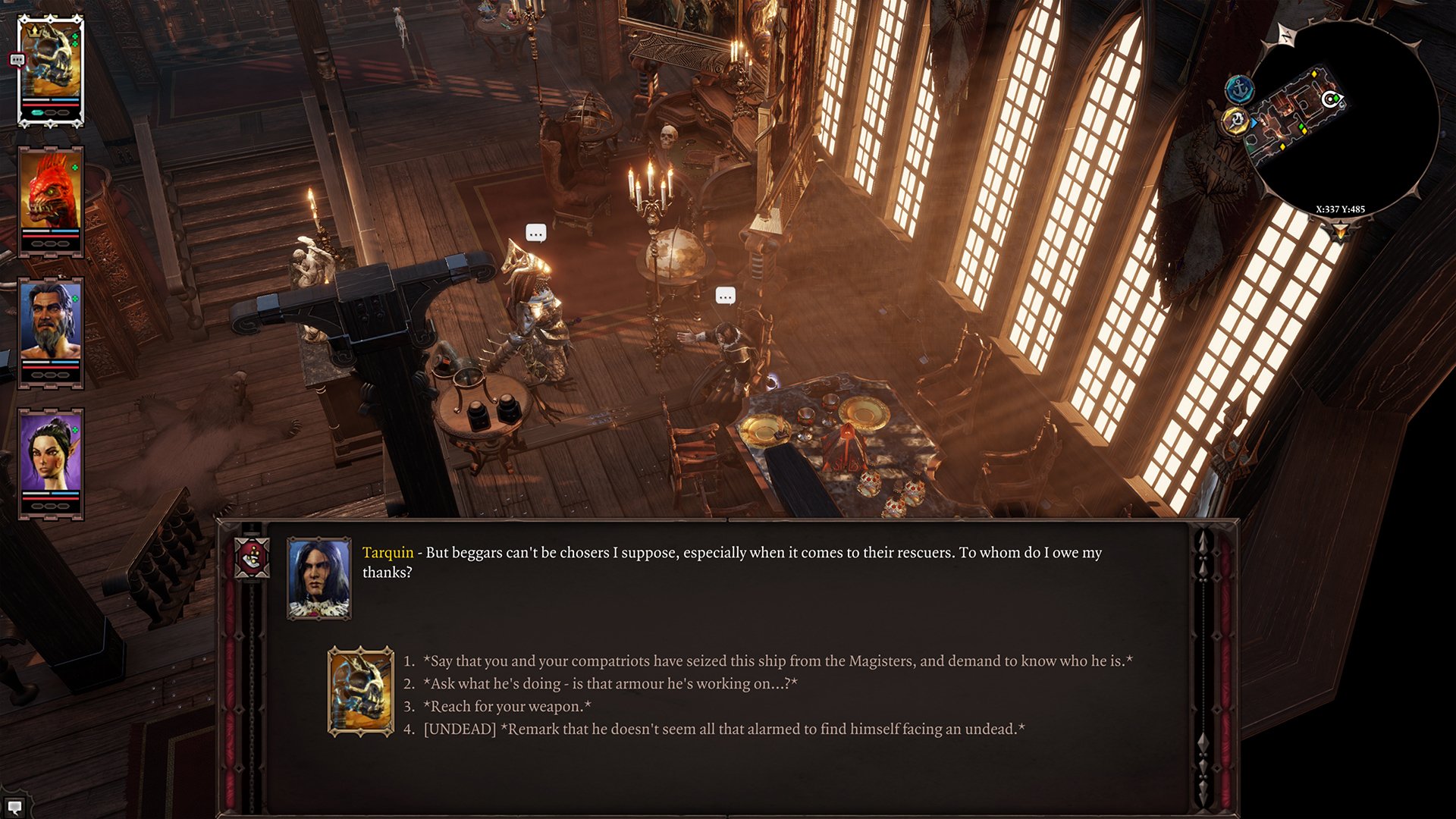
Its Gameplay
The gameplay is handled by two different modes essentially. When you're not in combat, and when you are. When you're not in combat, the game is like other over-the-top view of the world around you where you can move around, interact with NPCs (you can have conversations with almost everyone and it's encouraged to talk to people as they may have quests for you), and vendors. It is important to point out that you can also kill any of the NPCs you come across and some of these choices impact the way you play the game going forward. You can kill a vendor and you'll never be able to buy certain items until you move to the next area, some 10-12 hours later.
When you are in combat however, the game becomes a turn based tactical arena between the enemies you've aggro'd and your team. You have a certain amount of action points you can use for both movement and spells/attacks. Different spells use different amounts of action points depending on their strength or utility. Everyone you come across is limited by the same rules as you are and have access to all the spells you have. For the most part they also don't tend to have spells or abilities that you can't get yourself.
My Thoughts
My main takeaways from my two playthroughs and why I love this game comes from your own choices and the expansive story. When other games say you have different choices, they wish they had as much choice as this game. When other games say they have story, they wish they had as much story as this game. Divinity Original Sin 2 have both of these in spades without even having to play the game again. You'll end up doing just that because distinct decisions will stay on your head and you'll always wonder how the story would unfold differently some 70 hours later.
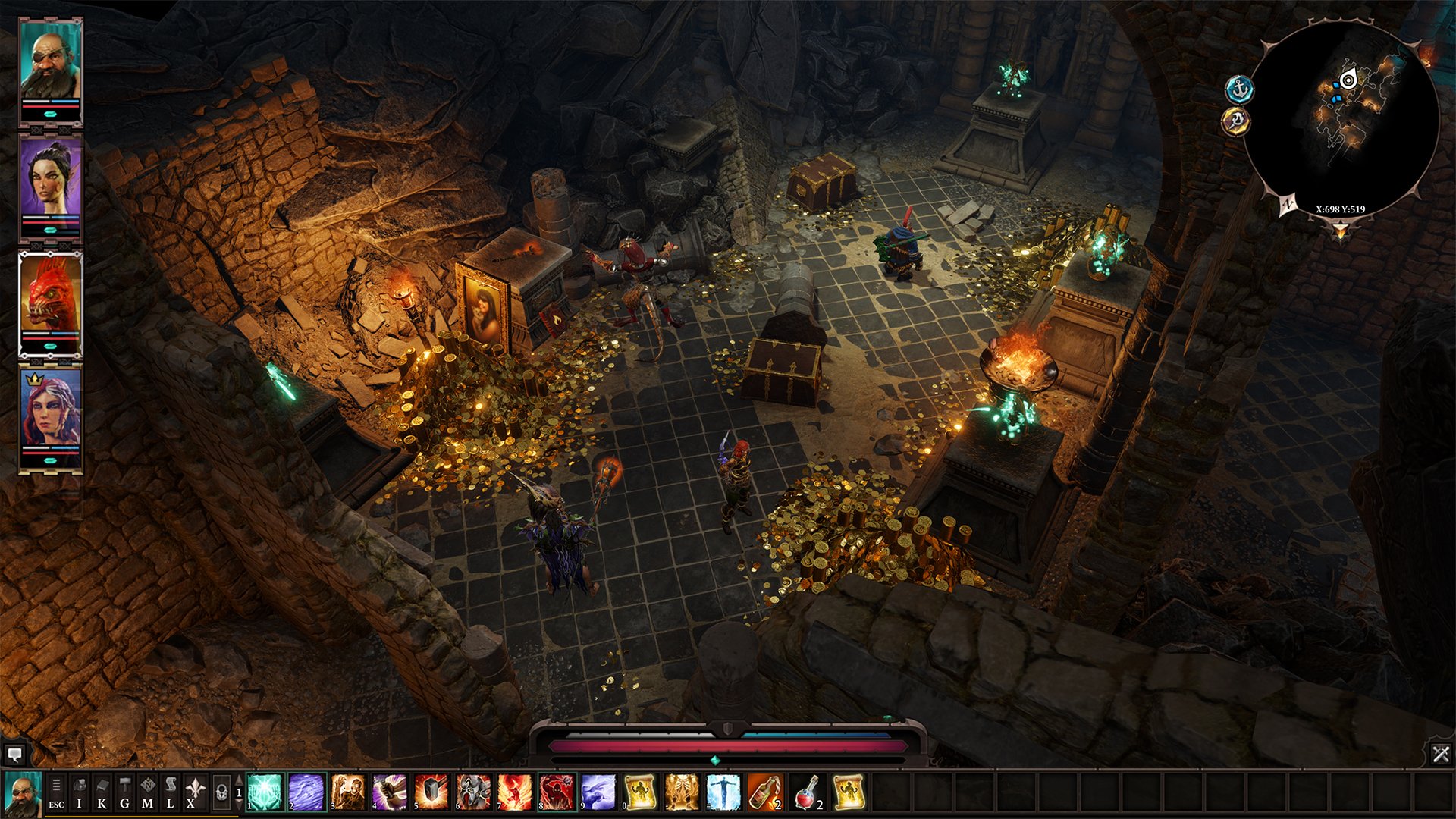
Choice
Like I said above, you as the player are given a great deal of choice. Should you play one of the Origin characters or should create your own? Which of the other characters do you want to be your companions? Which of them do you want to kill early so you don't have to face them later? If an NPC gives you some information about one of you companions, should you listen to them, or should you do something about it? All these decisions you'll have to make early and often and these are just the decisions that have to do with you companions.
The other types of decisions you'll have to make come from your actual characters and companions classes' and their stats. This will impact how you engage your enemies in battle.
Character and Companion Progression
Every character in this game can be developed in an amazingly different way they are in other RPGs. There are no predefined classes and you can build a character however you like to use the spells you want. There aren't any skill trees, but you are gated into what spells you can use based on your level and the stats you choose to invest in. You can learn any spell you like, but you can't use it without meeting a spells retirements.
There are a number of categories of stats that your character can upgrade into as you level up. There are your main attributes, abilities and talents. Your attributes are you basic strength, intelligence, agility etc. that you'll find in every RPG game and are straight forward to understand. Different spells and attacks scale with the different attributes. There are also two other attributes unique to this genre of game, memory and wits. Memory impact the amount of spells you can equip at any time and wits is used to determine initiation order.
Your abilities are separated into combat and civic abilities. Combat abilities are basic percentage increases in either weapon types or skill damage from the different types of skills. The civic abilities general modifiers for interaction with the world outside of combat, from your bartering level to sneaking and thievery.
Last but not least, there are talents. These are general modifiers to the game that are independent of your attributes and abilities that impact special interactions during combat. From a talent that increases your number of memory slots for classes that use a great many spells, to making NPCs less likely to target you in combat. There are many different talents to choose from and are all unique, requiring forethought into how you want that particular character to work in combat and how they synergize with the rest of your team.

There will always be a best way to build a particular character based on what skill classes your character uses, but you can easily change any of your stats once you reach a certain part of the game and any time after. This is important and doesn't make any of your stat choices permanent. I think this is amazing to have in the game because it allows you to experiment endlessly. I think I probably spent a third of my first playthrough just changing stats and skills around to min-max as much as possible. It didn't cost anything to do except the cost of buying the spells to teach all your different characters.
NPCs
All the NPCs use the same character stats as your characters and this is different from most other games. This makes combat more about the skill of using the right spells and positioning yourself properly. The AI in this game is fairly good in combat and while an increase in difficulty level does come with a flat increase to their health (which I hate. Increasing difficulty through making your enemies damage sponges is always terrible in any game.), the AI does get more tactical and makes better in choices. The AI also tends to use their environment to their advantage as much as possible like a real person would. I will talk about environment interaction in combat below.
Story
The story of this game is as long or as short as you want it to be. There is a main story line that you have to do to progress the story in any area, but the game incentivises you to do other activities and quests before you're able to progress through certain parts of the story. It does this by gating story through leveling. You can technically attempt to progress through the story without doing any of the side content, its incredibly difficult. This was never a problem to me as the side quests were always interesting. I wanted to do my companion quests because I was genuinely interested in how their stories would progress. You can also find events that happen all over the map.
The story itself is very interesting and varied in scale and difficulty. From short quests that you can complete in the immediate area, to quests that require you to go all over the map to complete. Each area is also fairly independent to from other areas and everything you kill never respawns. As you progress from area to area, you can't go back to previous areas. This had the effect on me that I should see the whole world and do as much of the quests as I could because I knew I wouldn't be coming back until I start a new game. Interacting with different NPCs also unlock paths and parts of the map you wouldn't otherwise have access to. For example there, an ogre guarding a bridge that you can pay a toll to, attempt to kill or travel the long way round. There are checkpoints through out the map that you can fast travel to, but since all the death is permanent, these are helpful for moving around and not just spending time walking around. There aren't so many that it makes traveling around trivial though. I think the developers struck a perfect balance between the two.

Numerous Endings
This game has a number of ending depending on your decisions you've made throughout the game and who you choose to keep as a companion. You'll ultimately end up in the same place, but the interaction at the end will be different. The game is also insanely long and you don't know which decisions will impact the ending. The game does ramp up in difficulty as the game progresses and you'll need to play your characters the best you can to beat any of the endings.
The Combat
The combat systems are some of the best out there for turn based combat. For me, its like chess. Like I said above, its a turn based system that uses action points. This makes every turn with your team important both in preparation before combat and during. Using action points for both movement and spells requires you to plan ahead.
Explosive Environment
Your spells can interact with different elements of the environment and you can change the environment to a certain degree as well. It isn't destructible, but there are elemental interaction based on the class of your spells. For instance, if there's water on the ground you can use frost spells to freeze it and the characters standing in it or you can electrify it to do damage. Oil can be set on fire, poison can explode, fires can be put out with water. Its all pretty straight forward as to how different elements interact with one another. There is also high ground advantage and most spells can't go through the environment. As you play at higher difficulty, using the environment becomes more critical to winning fights.
No Hand Holding
This game doesn't handhold at all. You talk to NPCs to find out if they have quests, you have to read quest text and listen to NPCs to find out where and how to solve problems. There aren't too many map markers and most of them you have to add yourself to be able to find stuff again if you have terrible memory like me. The game is also not easy at all. You have to work for every piece of gear and think about every encounter. I love this. It forced me to engage with the game more and learn about the world. I never once had to look on a wiki on how to beat a certain encounter because it was all in the game if you paid attention.
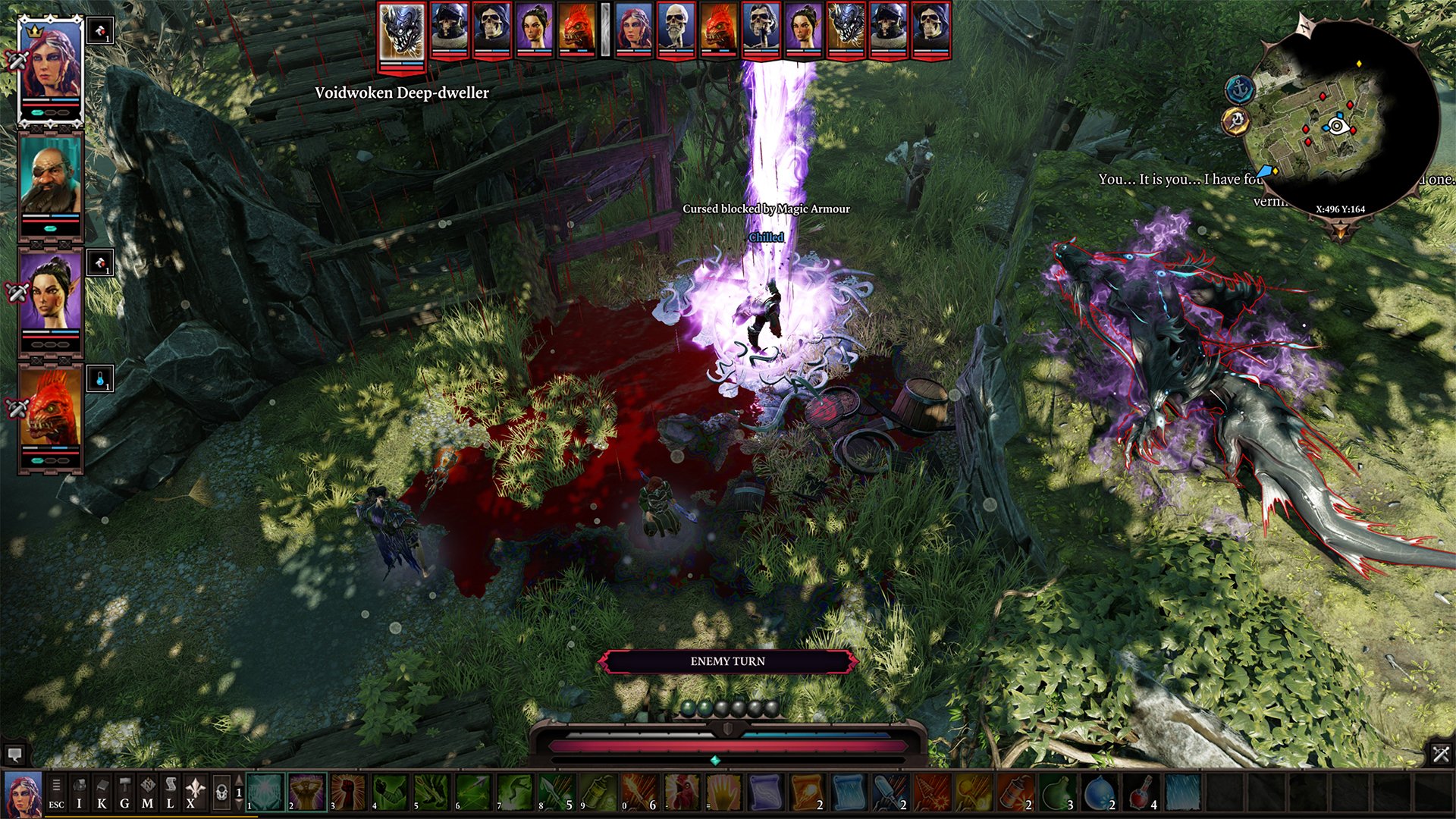
Honorable Mentions
I had to be very picky with what I wanted to add to this article because this game is insanely expansive and I've just scratched the surface for you. I haven't even experienced all the different stories and choices myself. There are a few honorable mentions I'd like to add though:
- There is a Game Master mode that I haven't yet tried. It allows game masters to create their own stories and guide players the same way they would in a table top version of DnD. I'd love to try this out someday as I haven't played a table top DnD game in a very long time.
- There is a special interaction with undead characters in this game. This could have an article all on its own. Having one or more of these in your party requires you to play the game differently way.
- The starting area is a bit linear. It is understandable though to learn about the game mechanics and consistent with the actual story, but when every area takes several hours to complete, on subsequent playthroughs it becomes a bit repetitive. The game opens up past this point though.
- I loved this game so much and heard such great things about the first one that I bought it after my firs playthrough. I haven't yet played it but will do soon. I want to finish my Honor Mode playthrough for this game. I also have university exams coming up so I have less time to play video games.
Conclusion
This game is so expansive and full of story and choice you could play this game several times and have different experiences every time. The game's complexity, while seemingly overwhelming at first, gives you level of satisfaction in learning that you rarely get from video games. You should definitely give it a shot. You won't regret it.
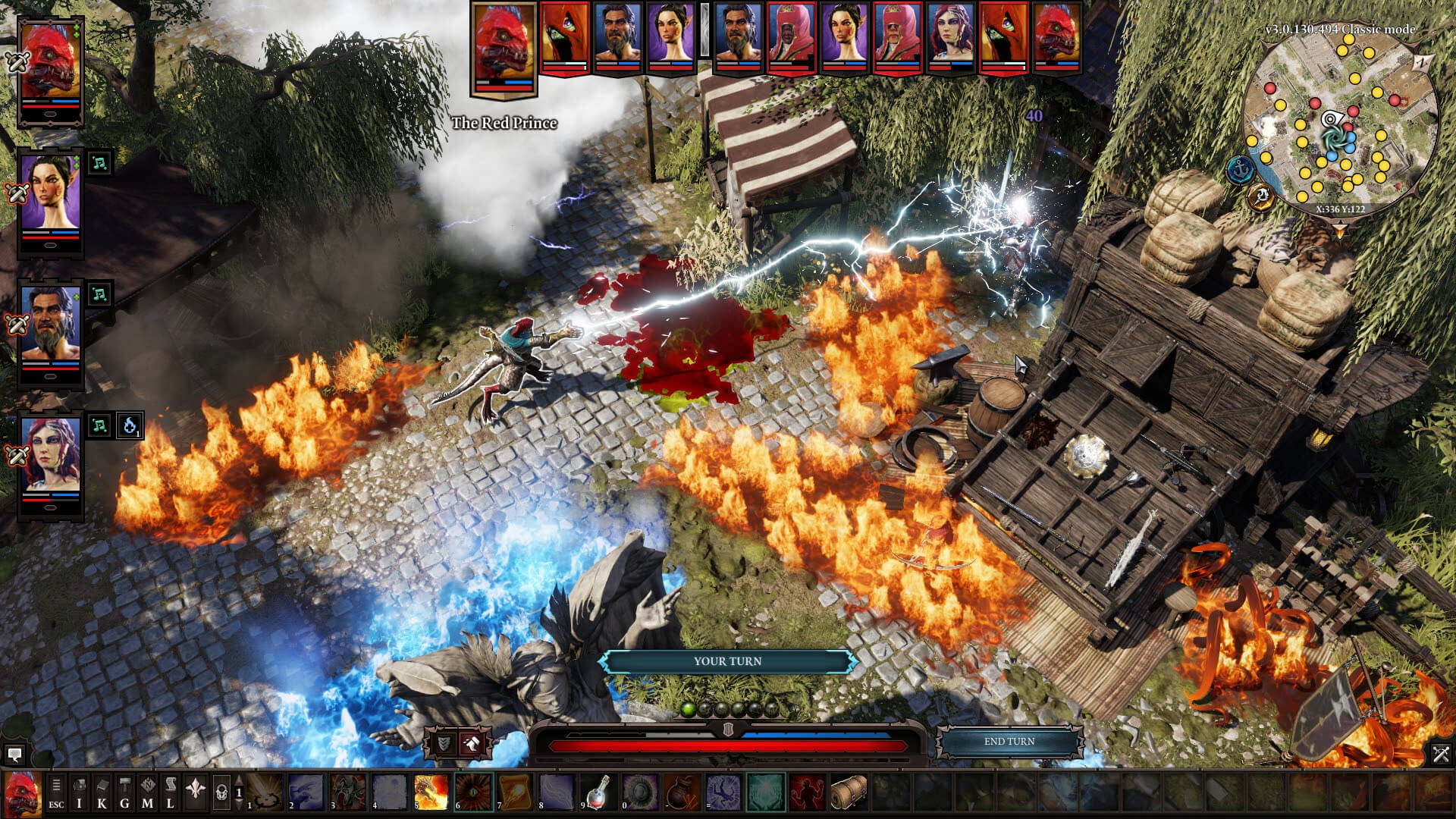
Thanks for Reading
Thanks for reading Why I Love Divinity Original Sin 2. If you want to read more from me in the future be sure to hit that Follow Button!
I try to write something everyday about my opinions on different video games, movies and my journey through Steemit!
Here's a list of my previous articles from the past week:
- My Return to Overwatch
- Why I Love Rainbow 6 Siege
- My Thoughts on Game Over, Man
- Why I Love Thor Ragnarok
- My Thoughts on Sea of Thieves
- Using Markdown to blog on Steemit
Thanks again for reading and have a lovely day!!
All Images from Divinity.game

